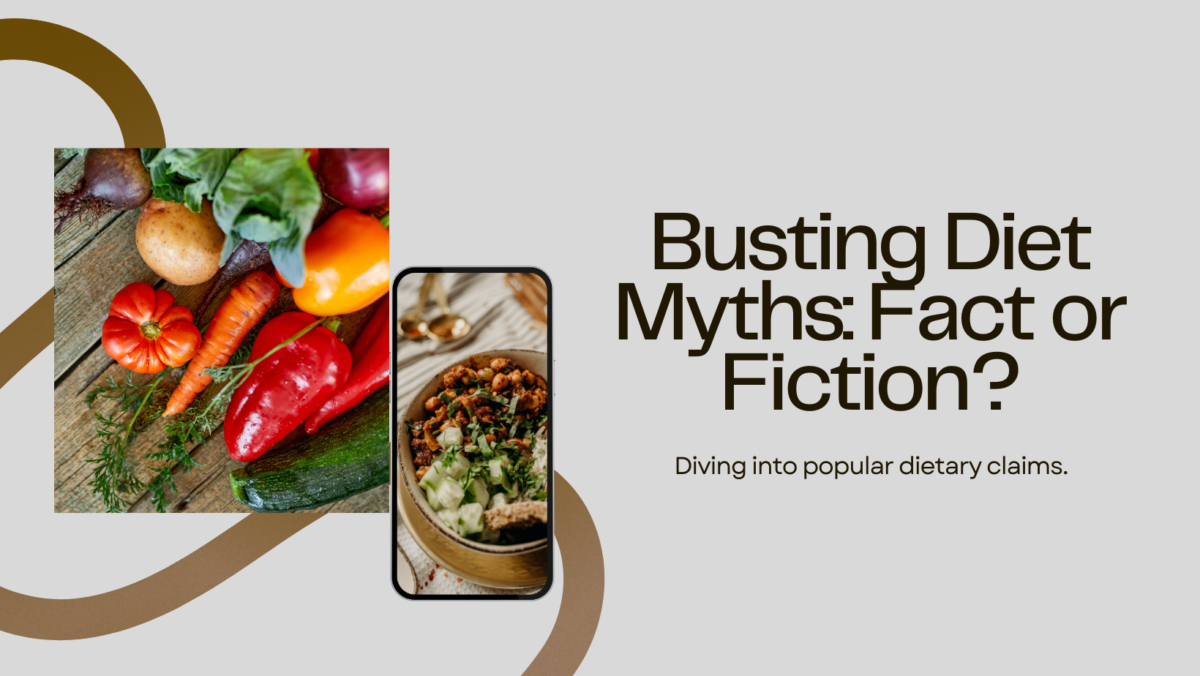Navigating the ever-evolving world of dieting can be perplexing. Countless trends vie for your attention, promising rapid weight loss, improved health, and a complete lifestyle overhaul. But how do you separate fact from fiction amidst the sea of information?
This article, brought to you by Dr. Atul Kasliwal, one of the best cardiologists in Rajasthan and Jaipur, aims to debunk some common diet myths and provide clarity on popular dietary approaches. Remember, no single diet fits everyone, and consulting a qualified healthcare professional for personalized guidance is crucial.
Diet Myths
Myth #1: All Carbs are Evil
Fact: Carbohydrates are our body’s primary source of energy. While refined carbs like white bread and sugary drinks can contribute to weight gain and health issues, complex carbs found in whole grains, fruits, and vegetables are essential for optimal health. Focus on quality, not quantity, choosing fiber-rich, nutrient-dense carbs over their processed counterparts.
Myth #2: Eating Fat Makes You Fat
Fact: Not all fats are created equal. Saturated and trans fats, found in fried foods and processed meats, can indeed contribute to weight gain and heart problems. However, healthy fats like those found in avocados, nuts, and olive oil provide essential nutrients, promote satiety, and even aid in weight management. Remember, moderation is key!
Myth #3: Juice Cleanses are Detox Wonders
Fact: Our bodies have remarkable detoxification systems (liver and kidneys) that naturally eliminate waste products. Juice cleanses, often lacking essential nutrients and fiber, can disrupt digestive function and even lead to malnutrition. Opt for a whole-food, balanced diet for true detoxification.
Myth #4: Gluten-Free is Always Healthier
Fact: Unless you have celiac disease or gluten sensitivity, going gluten-free is not inherently healthier. Many gluten-free processed foods can be high in sugar and unhealthy fats. Focus on incorporating whole, unprocessed foods regardless of their gluten content.
Myth #5: Restrictive Diets Lead to Lasting Success
Fact: Crash diets and extreme restrictions often backfire, leading to yo-yo dieting and unsustainable results. Aim for long-term, sustainable changes by focusing on creating healthy habits, mindful eating, and enjoying a variety of nutrient-rich foods.
Myth #6: Skipping Meals Boosts Metabolism
Fact: Regularly skipping meals can actually slow down your metabolism. Your body enters “starvation mode” when deprived of energy, storing calories instead of burning them. Aim for consistent, balanced meals and snacks throughout the day to keep your metabolism humming.
Myth #7: All Artificial Sweeteners are Harmful
Fact: Some artificial sweeteners have been linked to health concerns, but the research is ongoing and inconclusive. Stevia and erythritol, for example, are generally considered safe alternatives to sugar. Ultimately, moderation is key, regardless of the sweetener type.
The Bottom Line: Listen to Your Body, Seek Expert Guidance
Remember, there’s no one-size-fits-all approach to healthy eating. The best diet is the one that fuels your body, nourishes your mind, and fits seamlessly into your lifestyle. Consult a qualified healthcare professional, like Dr. Atul Kasliwal, one of the best cardiologist in Rajasthan for personalized advice and support in navigating the world of diet and achieving your health goals.
